
In the demanding, high-stakes world of Hollywood filmmaking, where long hours, intricate logistics, and immense creative pressures converge, the temperament and professionalism of those involved can significantly shape the entire production experience. Amidst this complex environment, actor Dave Bautista has emerged as a staunch advocate for a positive and respectful work culture, drawing a clear line in the sand against negativity and complaints on set. His candid declarations have not only resonated within the industry but have also sparked broader conversations about the importance of attitude in creative collaboration.
Bautista, a seasoned performer who has transitioned seamlessly from the wrestling ring to acclaimed cinematic roles, articulates a philosophy born from years of experience and a profound love for his craft. He firmly believes that the privilege of making movies should be met with enthusiasm and dedication, not with the cynicism or grumbling that can permeate a set. This perspective underscores a growing sentiment among industry veterans who prioritize a harmonious and productive atmosphere, understanding its direct impact on both the final product and the well-being of the crew.
His recent remarks, made during promotions for his latest action film “Afterburn,” serve as a potent reminder that while talent is paramount, a positive disposition and mutual respect are equally crucial ingredients for success. Bautista’s unwavering stance speaks to a desire to elevate the filmmaking process beyond mere work, transforming it into a truly collaborative and enjoyable endeavor where passion is the driving force and negativity finds no quarter.

1. **Dave Bautista’s Unwavering Stance on Set Negativity**Dave Bautista has made it unequivocally clear that he has zero tolerance for negativity on his film sets. His refusal to work with complainers stems from a deep-seated belief that life is too short to endure toxic attitudes, particularly when engaged in a profession as fortunate as filmmaking. This resolute position highlights his dedication to maintaining a positive and productive atmosphere for everyone involved in a production.
In a candid interview with Collider, Bautista articulated his firm resolve, stating, “I’m just at the age and at the point of my life where life’s just too goddamn short.” This statement encapsulates the core of his philosophy, emphasizing that his career choices are now guided by a desire for fulfilling and respectful collaborations. He views the act of filmmaking as a profound privilege, and he expects others to approach it with the same level of appreciation and enthusiasm.
His aversion to negativity is not merely a personal preference but a principle that he believes is vital for the health of any film set. Bautista clarified, “I want to work with people I just love and respect, because I love this business. I love filmmaking, and if people don’t want to be there, I don’t want to be there with them. You know?” This sentiment underscores his commitment to surrounding himself with individuals who share his passion and professional ethos, ensuring that the creative energy on set remains constructive and inspiring.
Bautista’s stance has become a defining characteristic of his professional brand, signaling to prospective collaborators that his sets are environments where passion and professionalism are expected. He is not interested in indulging those who view their work as a burden, but rather seeks out partners who are genuinely invested in the craft and committed to making the most of every opportunity.
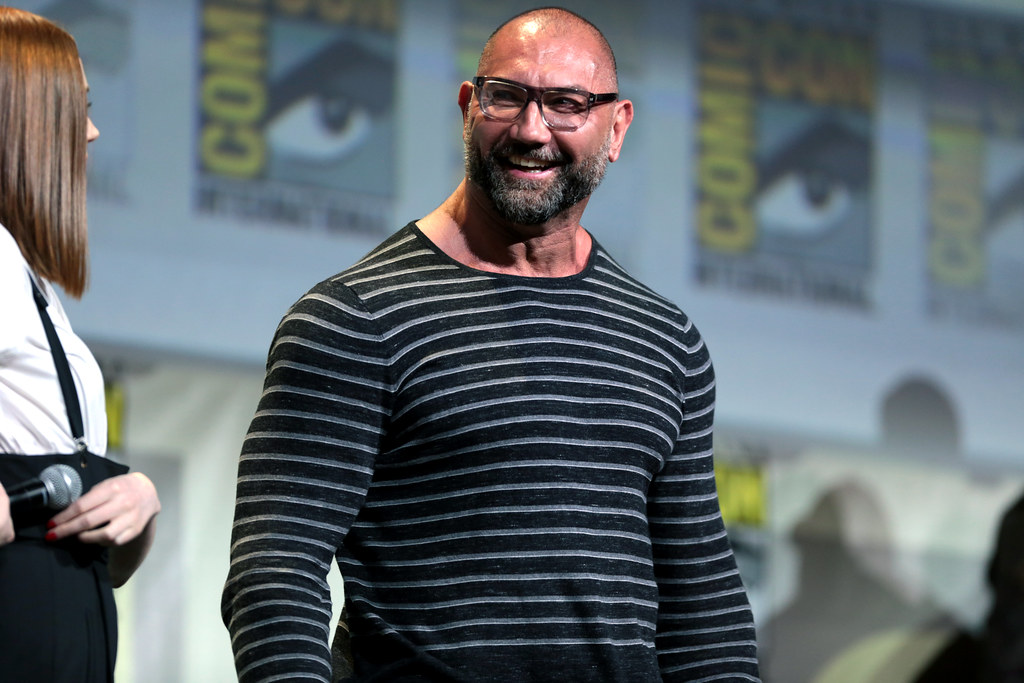
2. **”Life’s Too Short”: The Philosophy Driving His Professional Choices**The principle of “life’s too short” serves as the bedrock of Dave Bautista’s professional decisions, particularly concerning his refusal to work with complainers. This isn’t merely a casual remark; it’s a profound personal conviction that guides his selective approach to projects and collaborators in an industry that can often be grueling and demanding. He has reached a point in his career where he can prioritize personal and professional satisfaction over simply taking any role that comes his way.
Bautista echoed this sentiment repeatedly across various interviews, emphasizing that enduring “awful” on-set experiences over his 16-year career has shaped his current outlook. When discussing difficult co-stars, he agreed with Collider’s Steve Weintraub that spending “long hours” with a challenging individual can make a film shoot “horrific.” His reply, “Absolutely awful,” delivered with a laugh, subtly conveyed the depth of his experience and his subsequent determination to avoid such situations.
For Bautista, the choice to avoid negative individuals is an act of self-prespreservation and a conscious effort to safeguard his passion for filmmaking. He noted, “I’m happy to be there. It’s a love thing for me, and I’m passionate about it.” This statement highlights his intrinsic motivation and underscores that his work is not just a job, but a vocation he deeply cherishes. He refuses to allow the negativity of others to tarnish that profound connection to his craft.
This philosophy transcends mere preference; it reflects a mature understanding of career longevity and personal well-being. By actively choosing to work only with those he respects and admires, Bautista ensures that his time on set is spent in environments that are conducive to creativity, mutual support, and, crucially, genuine enjoyment. His advanced age and successful career afford him the luxury to be discerning, a privilege he uses to cultivate a more positive and fulfilling professional life.

3. **The Privilege of Filmmaking: A Love and Passion for the Craft**Central to Dave Bautista’s rejection of negativity is his profound love and passion for the craft of filmmaking itself. He consistently frames working in Hollywood not as a right, but as an immense privilege that should inspire gratitude and enthusiasm, rather than bitterness or complaint. This perspective is a driving force behind his desire to foster positive environments on set.
Bautista openly stated his feelings, asserting, “I want to work with people I just love and respect, because I love this business.” His words convey a deep reverence for the art of cinema and the collaborative effort required to bring stories to life. For him, being on a film set is an opportunity to contribute to something greater, and he expects that others who are equally fortunate to be there should share this sense of purpose and appreciation.
He reinforced this notion with powerful clarity, emphasizing, “I want to be there, and I want to make the most of it, so I don’t want to hear people bitching, complaining, moaning, and groaning about doing something that we’re all fortunate enough to be doing and making.” This quote perfectly encapsulates his belief that such a fortunate position demands a positive and engaged attitude. He sees complaining as not only unproductive but also as a form of disrespect for the opportunity at hand.
This sentiment aligns with his broader career trajectory, which saw him leave the WWE — a world he loved — to pursue acting with unwavering dedication. He told BuzzFeed, “It was just that I became so passionate about acting, and I’m still pursuing it with everything I have, but I still love that world.” His commitment to acting is not fleeting; it’s a sustained, intense pursuit, driven by genuine ardor and a desire to continuously improve and contribute meaningfully.
His passion also extends to his continuous efforts to grow as an actor, even aspiring to be part of “award conversations.” He told The Hollywood Reporter, “I will openly say that I want to be in award conversations. I want to be that caliber of actor.” This level of ambition and dedication further illustrates that his work is a serious, heartfelt pursuit, making any form of negativity from colleagues an unacceptable impedance to this deeply cherished journey.

4. **The Harmful Impact of Bad Attitudes on Production**Dave Bautista’s strong stance against complainers isn’t just about personal preference; it’s rooted in a clear understanding of how detrimental a bad attitude can be to the entire filmmaking process. He recognizes that negativity is contagious and can quickly erode morale, disrupt efficiency, and ultimately compromise the quality of the work being created on set.
During his interview with Collider, the reporter noted that “if you’re working with someone who’s an asshole, it makes the [film] entire shoot, from what I understand, horrific.” Bautista’s immediate and unequivocal agreement – “Absolutely awful” – highlighted his deep personal experience with such scenarios. He understands that a single negative presence can cast a long shadow over the arduous, lengthy process of making a film.
This perspective aligns with the demanding nature of film production, where intricate schedules, tight budgets, and countless moving parts require seamless collaboration. When individuals bring a “crappy” attitude, as fellow actor Chris Pratt put it, it introduces unnecessary friction and stress, diverting energy from creative problem-solving to conflict management. Such distractions are precisely what Bautista aims to eliminate from his professional life.
His commitment to a positive work environment stems from a genuine belief that a harmonious set is a more productive and creative one. He explained, “I want to be there, and I want to make the most of it.” This desire to maximize the experience for himself and others means minimizing external stressors, particularly those that arise from a lack of professionalism or gratitude. The cumulative effect of these negative attitudes can be destructive, undermining the collective effort and joy inherent in filmmaking.
Ultimately, Bautista’s insistence on a positive atmosphere serves as a protective measure for the integrity of the film and the well-being of the crew. He understands that a production is a delicate ecosystem, and even a small amount of toxicity can spread, making the already challenging task of bringing a film to fruition even more difficult and less rewarding for everyone involved.
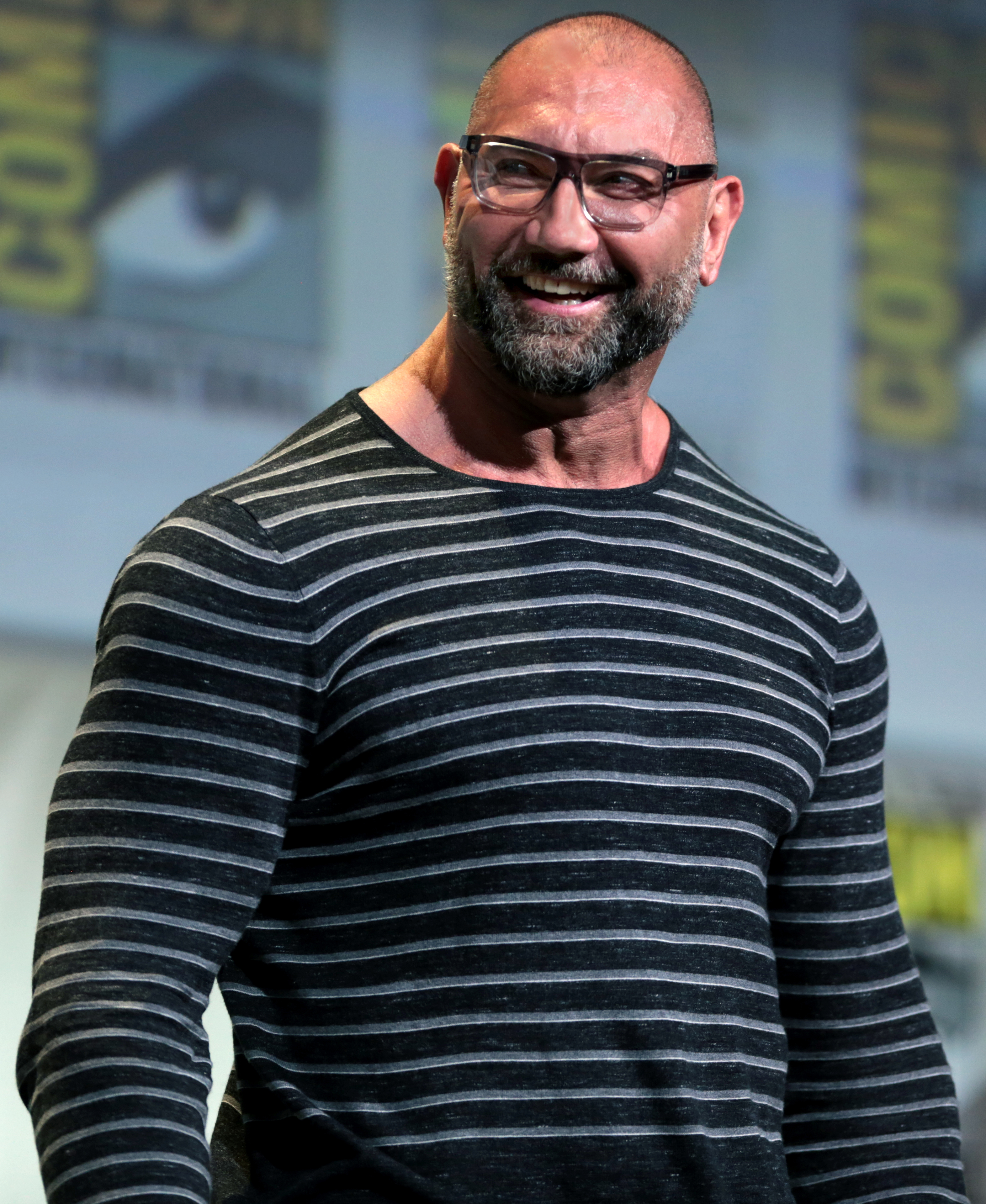
5. **J.J. Perry’s Endorsement: A Testament to Bautista’s Positive Presence**The positive impact of Dave Bautista’s work ethic and demeanor on set is not merely anecdotal; it is clearly affirmed by his collaborators. Director J.J. Perry, with whom Bautista worked on the upcoming film “Afterburn” and “The Killer’s Game,” provided a glowing endorsement, highlighting Bautista’s exemplary conduct and collaborative spirit, which stands in stark contrast to the negativity Bautista actively shuns.
Perry, who found a highly supportive partner in Bautista during the filming of “Afterburn,” lauded the actor’s contribution to a dynamic and encouraging atmosphere on set. He praised Bautista’s leadership, noting he has “never seen somebody so supportive of a cast and crew,” and credited the director with making the filmmaking process enjoyable and uplifting. This mutual admiration underscores the kind of collaborative environment Bautista strives to create and thrive within.
Perry’s commendation went beyond mere professional courtesy, reflecting a genuine appreciation for Bautista as a person and a colleague. He told Collider, “Steve, I’m just going to tell you something. If you don’t have someone like Dave Bautista in your life or a Dave Bautista, you’re missing out, bro.” This statement positions Bautista not just as a talented actor, but as an invaluable human presence on any production, someone whose character enriches the entire experience.
The director further elaborated on Bautista’s qualities, describing him as “a gem, bro. Generous, kind, smart, intelligent, and talented. All of the best things. To have a lead actor that’s so game and just as a friend, it was amazing for me.” This detailed praise paints a vivid picture of an actor who is not only professionally competent but also personally enriching to work alongside. Such positive feedback from a director provides significant validation for Bautista’s principled stance against on-set negativity.
This positive collaboration with J.J. Perry serves as a powerful testament to Bautista’s dedication to surrounding himself with respectful and motivated colleagues. It proves that his commitment to a positive set experience is not just a personal ideal but a practical approach that yields highly effective and enjoyable working relationships, fostering an environment where creativity can truly flourish.

6. **Chris Pratt’s Shared Sentiment: A Unified Front Against On-Set Toxicity**Dave Bautista is not an isolated voice in Hollywood regarding the importance of a positive attitude on film sets. His “Guardians of the Galaxy” co-star, Chris Pratt, has previously articulated strikingly similar sentiments, underscoring a growing consensus among leading actors against on-set toxicity. This shared perspective highlights a broader industry push for professionalism and respect.
Last year, Chris Pratt publicly criticized fellow artists who arrive at work with a “crappy” attitude. During a New York Comic Con panel for his Netflix sci-fi film “The Electric State,” Pratt emphatically stated, “Look, these guys can attest to this, because they’re the same way, like, there’s no room for s—-y attitudes there,” per People. This direct quote reveals a unified front among certain actors who believe that negativity has no place in the demanding world of moviemaking.
Pratt further elaborated on the damaging effects of a poor attitude, explaining, “You can’t have a bad attitude in moviemaking. It ruins everything for everyone, and then you don’t last long.” This serves as a stark warning, suggesting that beyond merely affecting morale, a consistently negative disposition can jeopardize one’s career longevity in an industry that relies heavily on reputation and collaborative harmony. Both Bautista and Pratt recognize that sustained success requires more than just talent; it demands a professional and considerate approach.
He continued, questioning the legitimacy of such complaints: “It sucks when people have a crappy attitude. So when you show up on set, there’s no reason why you should… Like, ‘Oh, are you having a hard time living your dream? Is that tough for you today?’ Like, come on and pull your head out.” This rhetorical question powerfully challenges the entitlement that sometimes accompanies a negative outlook, reminding individuals of the immense privilege involved in pursuing a career in entertainment.
The congruence of Bautista’s and Pratt’s views demonstrates that this isn’t just a personal quirk but a principled stand adopted by respected figures in the industry. Their combined voices send a clear message: the creative process thrives on positive energy and mutual respect, and there is an increasing intolerance for those who detract from it with ungrateful or difficult behavior.
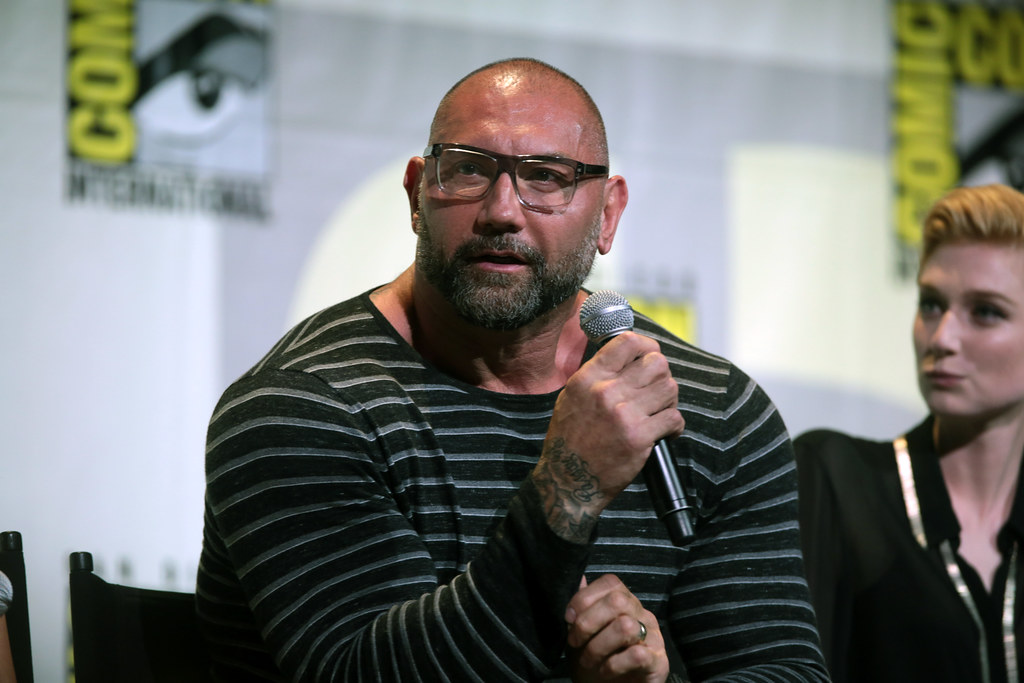
7. **Cultivating a Respectful and Motivated Work Environment**Dave Bautista’s stance on avoiding negativity is ultimately aimed at cultivating a work environment that is characterized by respect, motivation, and shared passion. His professional choices are a deliberate strategy to ensure that every film set he steps onto is a space where creativity can flourish unhindered by unnecessary interpersonal friction or complaints.
His expressed desire to work only with people he loves and respects directly translates into fostering a specific kind of set culture. This approach suggests that a truly collaborative and successful production hinges on more than just professional competence; it requires a foundation of personal rapport and mutual admiration. By filtering out individuals who do not align with these values, Bautista proactively shapes the dynamics of his working relationships.
Bautista articulated his goal clearly: “I want to be there, and I want to make the most of it.” This statement isn’t just about his personal enjoyment, but also about maximizing the collective output and experience for everyone involved. A motivated team, free from constant “bitchin’, complainin’, moanin’, and groanin’,” is better equipped to tackle challenges, embrace creative solutions, and deliver a superior product.
Furthermore, his appreciation for supportive directors, such as J.J. Perry, underscores his belief in leadership that actively fosters a positive environment. Perry’s praise for Bautista as a “gem” who is “generous, kind, smart, intelligent, and talented” reflects the reciprocal nature of such relationships. When a lead actor brings such an attitude, it naturally elevates the entire crew, creating a virtuous cycle of positive engagement.
Ultimately, Bautista’s insistence on a positive set is a testament to his vision of filmmaking as a joyful and deeply rewarding endeavor. By advocating for a culture of respect and enthusiasm, he aims to contribute to an industry where the hard work is tempered by genuine passion, and the creative spirit is never overshadowed by unnecessary discontent. It’s a proactive approach to ensure that the privilege of making movies remains a truly fulfilling experience for all.
Read more about: Unpacking the Outcry: TMZ’s Mea Culpa After Laughter Disrupts Charlie Kirk Assassination Coverage
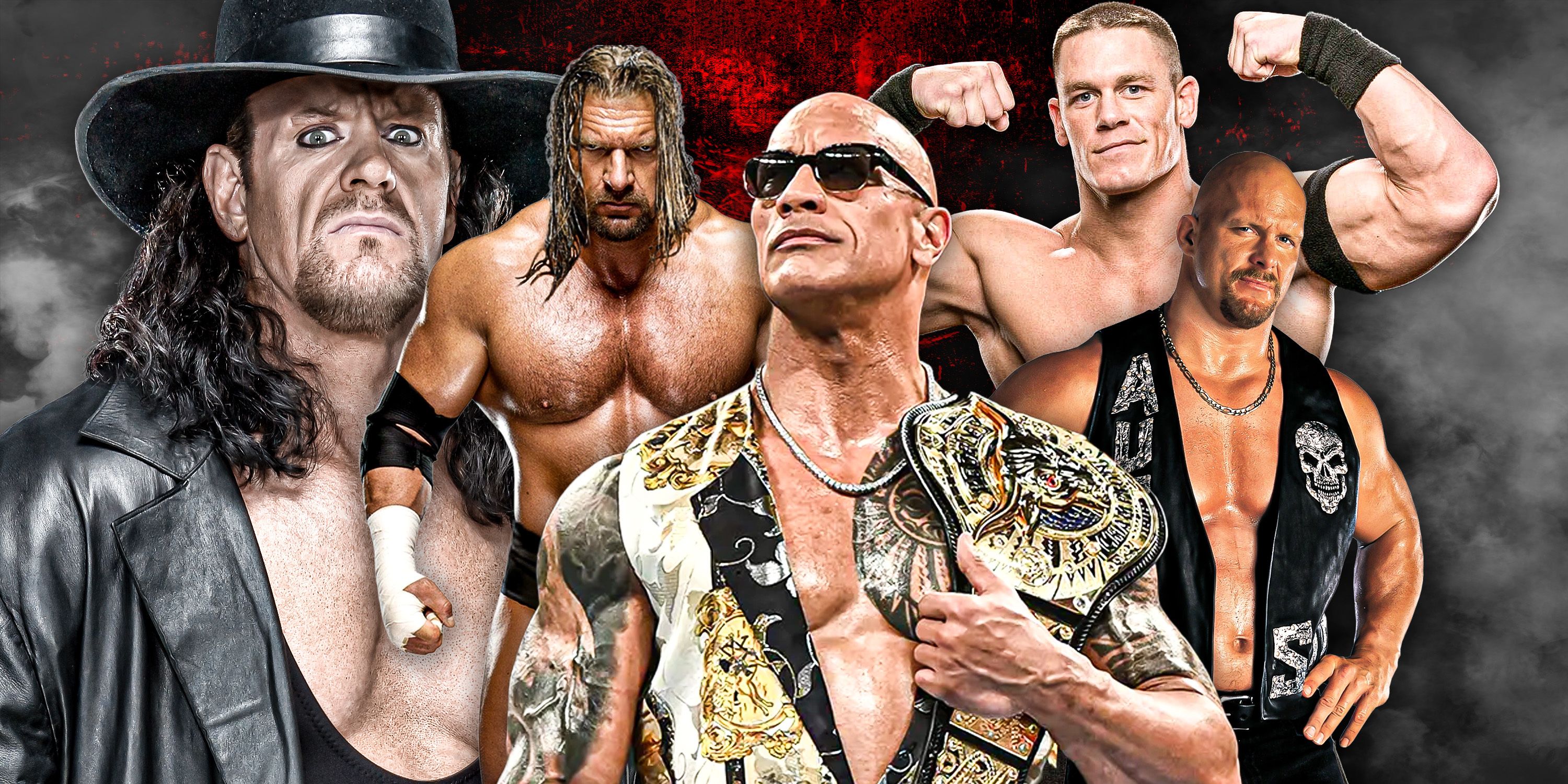
8. **From WWE Ring to Hollywood A-List: Bautista’s Transformative Journey**Dave Bautista’s career trajectory from the squared circle of WWE to the esteemed stages of Hollywood is a testament to his unwavering dedication and passionate pursuit of acting. The former WWE star made a significant career change 15 years ago, a decision he discussed candidly, revealing that while he deeply loved professional wrestling, his passion for acting became all-consuming. This dramatic pivot underscores the depth of his commitment to his new craft, transforming him from a celebrated athlete into a serious cinematic presence.
He told BuzzFeed, “It was just that I became so passionate about acting, and I’m still pursuing it with everything I have, but I still love that world.” This statement highlights that his move was not a rejection of his past, but an embrace of a profound new calling. Bautista has consistently aimed to diversify his acting filmography, striving to branch out far beyond his breakthrough role as Drax the Destroyer in the Marvel Cinematic Universe, a role that brought him global recognition but also the challenge of typecasting.
His commitment to evolving as an actor has even involved significant physical transformations. Last year, Bautista revealed he started trimming down from a bulky 315 pounds for a role in “Knock at the Cabin,” explaining, “The more I trimmed down the better I looked on camera and the better I looked next to other actors.” This strategic weight loss was not merely for aesthetics, but a deliberate effort to gain access to a larger pool of acting roles, proving his willingness to adapt his physical presence to meet the demands of diverse characters.
Bautista’s ambition transcends superficial roles, driven by a profound desire for respect and artistic integrity. He famously told GQ magazine that “I just want to be a good f—ing actor. A respected actor.” This sentiment encapsulates his journey, illustrating a relentless pursuit of excellence and a clear vision for his place in the film industry, one built on skill, versatility, and genuine passion.

9. **Denis Villeneuve’s Validation: A Turning Point in His Acting Approach**Among Dave Bautista’s cherished collaborations, his work with director Denis Villeneuve on films like “Blade Runner 2049” and the “Dune” series holds a particularly significant place. Villeneuve’s unique insight and support proved to be a pivotal moment in Bautista’s development as an actor, providing crucial validation and encouragement that profoundly impacted his approach to his craft.
Bautista shared a revealing anecdote with Gizmodo, recalling a moment on the set of his first film with Villeneuve where the director offered critical feedback. “I’ve never had a director until Denis, since Denis, say to me that you’re a very strong actor,” Bautista recounted. He admitted to holding back, feeling self-conscious and unsure of himself at the time, a vulnerability that Villeneuve perceptively identified.
Villeneuve approached him, saying, “‘I feel like you’re holding back. You’re a very strong actor, my friend. Just follow your instincts.’” This powerful endorsement from a director of Villeneuve’s caliber allowed Bautista to shed his inhibitions and fully embrace his creative instincts. He explained, “And so I started belting it out, and I started finding this character,” a transformative experience that unlocked new levels of performance.
The impact of this support extended beyond the immediate scene. Bautista noted that Villeneuve “not only loved it so much, but he was so supportive of my performance that he wanted to capture other people’s reactions to my performance.” For Bautista, this level of validation was unprecedented: “that was an experience I’ve never had before or since, with a director of that caliber. So it means everything. It’s validation.” This collaboration remains a high watermark, demonstrating the profound effect a trusting and supportive director can have on an actor’s confidence and artistry.

10. **Enduring Demands: Bautista’s Toughest Shoots**Despite his deep love for filmmaking and his insistence on a positive set, Dave Bautista acknowledges that the production process itself can be incredibly arduous and physically demanding. Even for someone as passionate as he is, certain shoots stand out as particularly challenging, pushing the limits of endurance for both cast and crew.
Bautista confessed that the original “Guardians of the Galaxy” film contained what was, at the time, his toughest shoot. He described a major action sequence that director James Gunn intended to film as a “oner,” a single continuous shot. This elaborate sequence involved approximately 50 people and was a “big action sequence” that required immense precision and coordination from everyone involved.
“I think we did 23 takes, and it was just very big and complicated with the camera, and everybody had to be right on,” Bautista recalled, painting a vivid picture of the grueling repetition. The physical toll was considerable, with Bautista jokingly adding, “People were dying, and I was dying. I was killing the stunt guy. I was just kicking the s— out of him.” He remembered feeling “awful” as the stunt performer grew slower after each take.
In a poignant twist, after all the intense effort—23 takes of a complex, physically taxing sequence—Bautista revealed, “they never ended up using it.” This experience highlights the demanding and sometimes unforgiving nature of filmmaking, where countless hours of work can ultimately be left on the cutting room floor. Looking ahead, Bautista teased that the upcoming “Highlander” film could potentially dethrone “Guardians” as his most difficult shoot, indicating the intense physical and artistic challenges he continues to embrace.
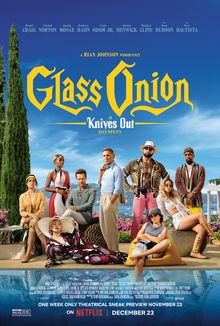
11. **Public Speculation: Who Are the “A**holes” Bautista Refuses to Work With?**Dave Bautista’s candid remarks about refusing to work with complainers and “a—holes” in Hollywood have, perhaps predictably, sparked a wave of public speculation regarding which of his past co-stars might fit this description. While Bautista has maintained a steadfast refusal to name-drop, fans and industry observers have been quick to offer their own theories.
Following his interview, online forums like Reddit became a hotbed of discussion, with users attempting to identify potential candidates. Among the most frequently cited names were his “Blade Runner 2049” co-star Jared Leto and “Glass Onion” co-star Edward Norton. Both actors are renowned for their intense dedication to their craft, a commitment that has, over time, fueled unsubstantiated rumors of them being “difficult” to work with or having demanding on-set personas.
The speculation surrounding Leto and Norton stems from their reputation for method acting and meticulous preparation, which some perceive as potentially leading to friction or an overly serious atmosphere on set. While no concrete evidence supports these claims regarding Bautista’s specific grievances, the very nature of their public personas makes them easy targets for such guesswork.
Interestingly, some Reddit users initially considered Bautista’s “Guardians of the Galaxy” co-star Chris Pratt as a contender. However, this suggestion was largely dismissed by the community due to Pratt’s generally positive reputation and Bautista’s known fondness for him, as well as their shared sentiments against on-set toxicity. The ongoing discussion highlights the human inclination to connect dots and identify individuals when a celebrity speaks broadly about professional challenges without specific names.
Read more about: Unearthing Ancient Powerhouses: The Top 10 Superfoods Revolutionizing Your Plate in 2024
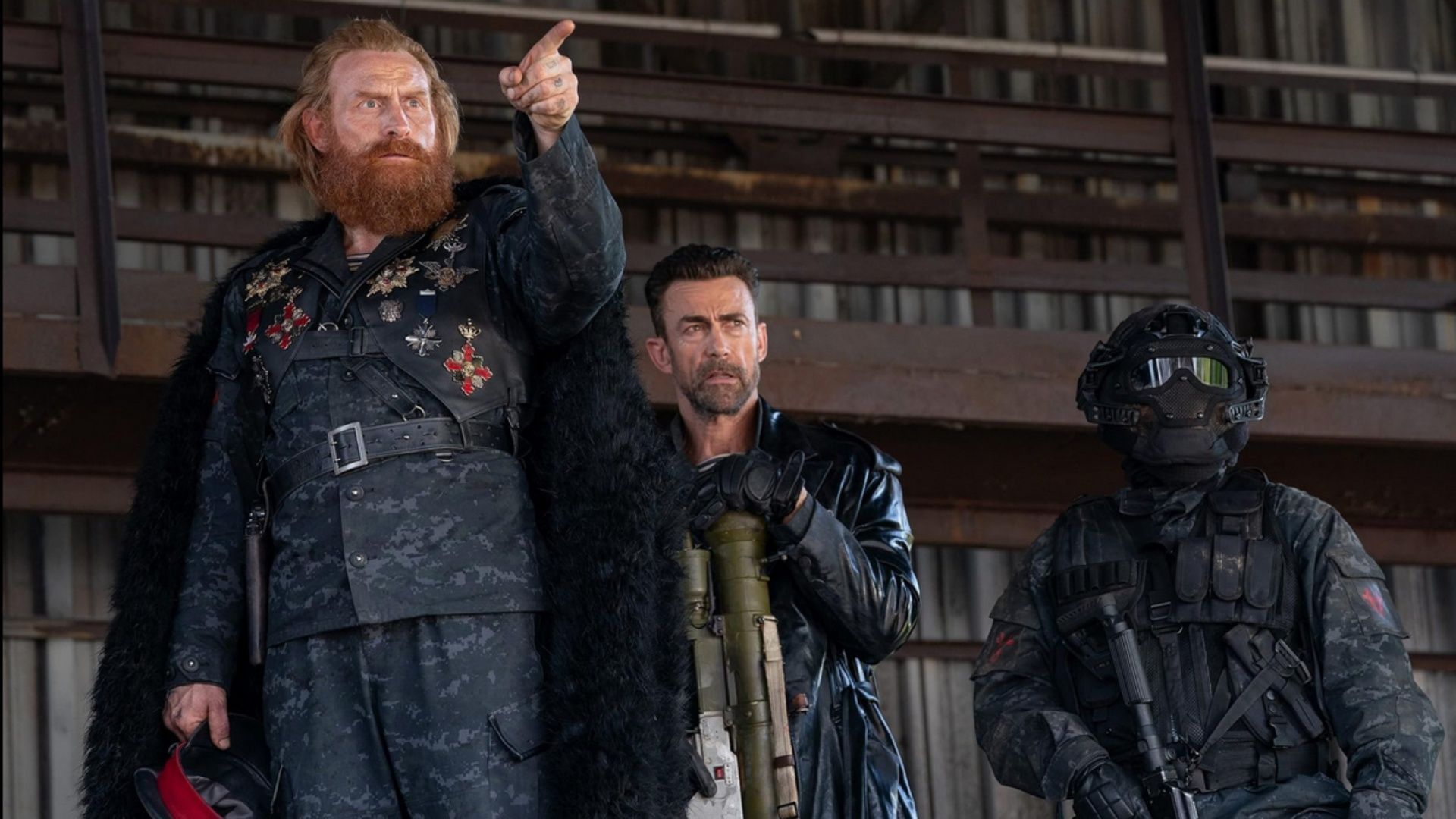
12. **The “Afterburn” Context: A Case Study in Positive Collaboration**Dave Bautista’s impactful statements regarding his refusal to tolerate negativity on set gained prominence during the promotion of his latest action film, “Afterburn.” This context is crucial, as the production itself serves as a prime example of the positive, collaborative environment Bautista champions and seeks in his professional life.
“Afterburn,” set to hit theaters on September 19, is a post-apocalyptic action flick that features Bautista as Jake, a treasure hunter for hire. His character ventures to Europe after a massive solar flare devastates Earth’s eastern hemisphere, embarking on a quest to uncover the coveted Mona Lisa, only to realize the world desperately needs a hero more than a painting. The film boasts a notable cast, with Bautista starring alongside acclaimed actors Samuel L. Jackson and Olga Kurylenko, adding layers of gravitas and talent to the ensemble.
Crucially, the film is directed by J.J. Perry, with whom Bautista shared a highly supportive and dynamic working relationship. Perry’s background as a stunt performer likely contributed to a respectful and energetic set environment, a factor Bautista deeply appreciated. Their mutual admiration was palpable, with Perry praising Bautista’s leadership and calling him a “gem” who makes filmmaking enjoyable.
This collaboration with Perry on “Afterburn” (and also “The Killer’s Game”) became a backdrop against which Bautista articulated his firm stance. It underscored his dedication to surrounding himself with respectful and motivated colleagues, proving that his commitment to a positive set experience is not just a personal ideal but a practical approach that yields highly effective and enjoyable working relationships, fostering an environment where creativity can truly flourish.
As his career continues to evolve with projects like “Afterburn” and the highly anticipated “Highlander,” Dave Bautista’s legacy will undoubtedly be marked not just by his compelling performances, but by his unwavering commitment to fostering a positive, professional, and genuinely passionate atmosphere wherever he works. His voice stands as a powerful reminder that in the demanding world of Hollywood, a good attitude is, indeed, priceless.



